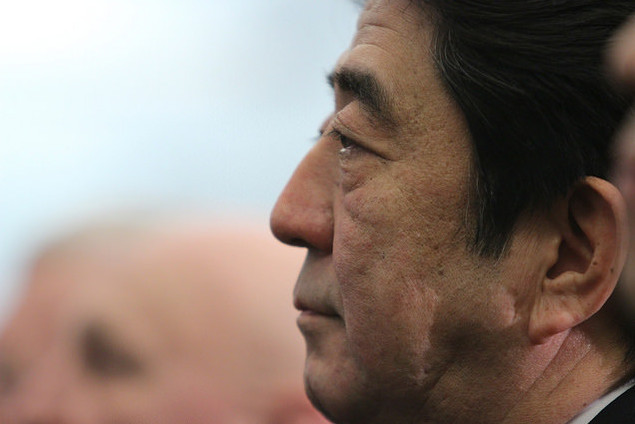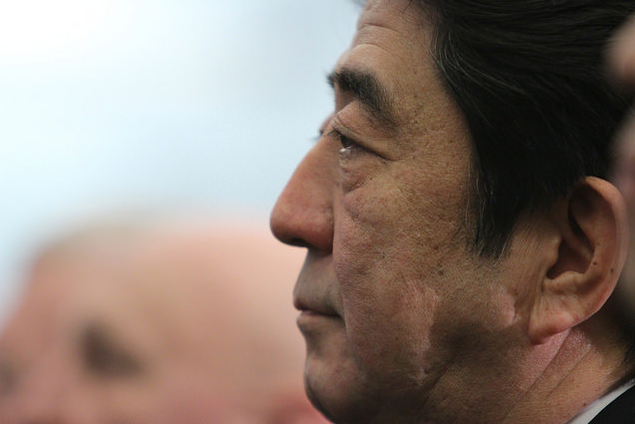
Day Donaldson
Now, representatives of various industries are meeting at information events across the country. During these collective workshops they are coming to tricky topics such as customs and classification of producer countries.
One of the biggest concerns of experts is the free trade agreement, which, apparently, will never enter into force. It becomes a waste paper after the US President-elect Donald Trump announced on 22 November that he wants to withdraw the U.S. participation from the Trans-Pacific Partnership (TTP) immediately after his inauguration.
For its part, Tokyo is still clinging to hope that the next US president did not so seriously mean his campaign statements, and can still be persuaded. Therefore, information activities are continuing across the country. And that is why Prime Minister Shinzo Abe miss no opportunity to maintain the alliance with the power-protector.
Japan is highly dependent on the free trade agreement. The third-largest world economy hopes for new growth impulses for their industry. Together with eleven other participants of the TTP - from the United States to Vietnam - Japan agreed to diminish or even abolish customs duties and introduce single legal standards, such as protection of intellectual property.
Moreover, the TTP is the main support for Abe's growth strategy (Abenomics). Premier wanted to use external pressure to break down the hardened structures and modernize their own country from manufacturing to agriculture.
In addition, the free trade agreement was to give advantages in competition with China. This agreement was largely directed against the powerful opponent and often unfair trade practices.
Therefore, fears are growing in Tokyo. Trump’s doings and sayings suggests that he sees the world trade as a zero-sum attrition. He promised that he would return jobs back to the US, especially from Asia, the growing region, which is particularly dependent on open markets. Instead of free trade, Trump relies on bilateral pressure that awakens in Tokyo painful memories of the 80s. Then, the country had to negotiate with Washington on export quotas for automotive spare parts and semiconductors.
The Japanese are also concerned about Trump’s threats towards the Chinese neighbor. During the election campaign, he said he wants to increase penal duties on imports from China to 45%. In late December, he entrusted Peter Navarro with trade issues in the White House. This is a well-known economist and a critic of China. One of his books’ headline is "Crouching Tiger: What China's Militarism Means for the World", which speak volumes.
Therefore, China fears for the fate of open markets, which profit from all those foreign manufacturers operating in the country. First and foremost, these are American and German firms. "China is ready to work with other countries to fight against protectionism," - recently wrote Commerce Minister Gao Hucheng.
It is quite absurd that the most authoritarian rulers in Beijing have become champions of the liberal principles of trade. After all, they have been deliberately defending its giant domestic market, and, in particular, its strategic trade and information technology.
source: spiegel.de
One of the biggest concerns of experts is the free trade agreement, which, apparently, will never enter into force. It becomes a waste paper after the US President-elect Donald Trump announced on 22 November that he wants to withdraw the U.S. participation from the Trans-Pacific Partnership (TTP) immediately after his inauguration.
For its part, Tokyo is still clinging to hope that the next US president did not so seriously mean his campaign statements, and can still be persuaded. Therefore, information activities are continuing across the country. And that is why Prime Minister Shinzo Abe miss no opportunity to maintain the alliance with the power-protector.
Japan is highly dependent on the free trade agreement. The third-largest world economy hopes for new growth impulses for their industry. Together with eleven other participants of the TTP - from the United States to Vietnam - Japan agreed to diminish or even abolish customs duties and introduce single legal standards, such as protection of intellectual property.
Moreover, the TTP is the main support for Abe's growth strategy (Abenomics). Premier wanted to use external pressure to break down the hardened structures and modernize their own country from manufacturing to agriculture.
In addition, the free trade agreement was to give advantages in competition with China. This agreement was largely directed against the powerful opponent and often unfair trade practices.
Therefore, fears are growing in Tokyo. Trump’s doings and sayings suggests that he sees the world trade as a zero-sum attrition. He promised that he would return jobs back to the US, especially from Asia, the growing region, which is particularly dependent on open markets. Instead of free trade, Trump relies on bilateral pressure that awakens in Tokyo painful memories of the 80s. Then, the country had to negotiate with Washington on export quotas for automotive spare parts and semiconductors.
The Japanese are also concerned about Trump’s threats towards the Chinese neighbor. During the election campaign, he said he wants to increase penal duties on imports from China to 45%. In late December, he entrusted Peter Navarro with trade issues in the White House. This is a well-known economist and a critic of China. One of his books’ headline is "Crouching Tiger: What China's Militarism Means for the World", which speak volumes.
Therefore, China fears for the fate of open markets, which profit from all those foreign manufacturers operating in the country. First and foremost, these are American and German firms. "China is ready to work with other countries to fight against protectionism," - recently wrote Commerce Minister Gao Hucheng.
It is quite absurd that the most authoritarian rulers in Beijing have become champions of the liberal principles of trade. After all, they have been deliberately defending its giant domestic market, and, in particular, its strategic trade and information technology.
source: spiegel.de


















